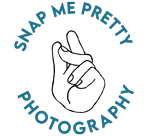What happens to your photos online?
After just 5 minutes of Googling, I realized that this is a very complicated answer to an equally complicated question. But hopefully I’ve managed to save you some spiraling into the Google void…after barely getting out myself.

The aim of this post is just to give you an idea of who actually owns the photos you commission and how you can control how you are perceived online.
Please note that this is all focused on booking a shoot with me, and how we (yes, you and I) use your photos after the shoot. It’s a complicated mess of spaghetti. Let’s see if we can untangle it a bit.
Copyright – who owns the photo?
“Het auteursrecht is het recht van de maker van een werk. Dat gaat dus over het recht op de creativiteit.” – Lees hier verder: https://www.charlotteslaw.nl/auteursrecht-en-portretrecht-wat-is-het-verschil/ © Charlotte’s Law
Copyright is the intellectual and creative right of the photographer. Photos and images are intellectual property and therefore owned by the photographer.
BUT if the portrait is commissioned, then the photographer needs permission to from the client to publish their photo.
.jpg)
“If the portrait is commissioned, then the photographer needs permission from the client to publish their photo.“
Portrait rights – can you object to your photo being published?
“Het portretrecht is het recht van de geportretteerde om, in sommige gevallen, de publicatie van het portret tegen te kunnen houden. Het portretrecht is geen vetorecht.” – Lees hier verder: https://www.charlotteslaw.nl/auteursrecht-en-portretrecht-wat-is-het-verschil/ © Charlotte’s Law
If a photo is a portrait of someone, then that person has portrait rights over the photo and they can object to the publishing their photo.
So yes, you can definitely object to your photo being published online by a professional photographer. But this is also not a veto right. There absolutely needs to be a balancing of interests and agreements between the client and the photographer about how they share the photos.
.jpg)
Sharing photos online is one of the main ways I can show prospective clients updated work.
A photoshoot with Snap Me Pretty
I take privacy and the needs of my clients very seriously. When you book, you give me permission to use your photos online for my social media or website (this is stated in my Terms and Conditions). But I do give you the option to opt out of online sharing. When I use your photos, it’s mainly for future clients (and the odd photo competition). I mostly use the photos for:
1) My website portfolio
2) My blog
3) Instagram and Facebook
4) Brochures or booklets for a workshop
5) And I use some in a protected sample gallery for prospective clients
I totally understand if this is too much for some people (especially with kids), but it’s also one of the main ways I can show prospective clients updated work.
Don’t want me to use your photos online? Here are some alternatives to help a girl out
1) Recommend me to 2 friends
2) Write an amazing review on my Google Places, or in your own gallery.
3) Order prints 🙂
4) Tag my Instagram account or website if you post the photo on your socials
.jpg)
“You can take control of your online narrative.”
The positives of having professional photos online
Have you ever Googled yourself? Which images come up when you do? Or even better, have you ever wanted to check a potential nanny, date, friend or just research someone you just met? You will most likely look at their photos first.
You are obviously in control of the photos you post online, but do you ever think about the kind of images you post? And do they show who you are? What is the overall impression of yourself, that you want to send out in the world? Professional photos can help with that!
When it comes to other people posting photos of you, these decisions might not be as considered. But lucky for you, I overthink everything and actually do consider the following issues before I post your photos online:
- Your full name. I rarely mention your full name in the blog, photo description or Instagram post. (unless you explicitly ask me otherwise)
- Does this image reflect you?
- Is this image relatable to my future clients – can they see themselves in you?
- Can this image be interpreted in any other way than it was intended?
For adults
As an adult, professional photos of yourself online can be a great benefit for your potential employers, partners and children. A professional photographer will be able to show your fun/outgoing/team spirit personality and lifestyle in a way that a drunken Friday night photo most likely won’t.
It’s absolutely no secret that we all turn to the internet to research other people and can even make snap decisions of them based on the content they have online. So it’s an important question to ask yourself: What image of yourself do you want to convey online?
.jpg)
“…professional photos of yourself online can be a great benefit for your potential employers, partners and children.”
For kids and families
The life of a kid is online. That’s just how it is in a 2021+ world. Once they hit puberty, there’s no stopping them from posting their own photos on the web. Whether they’re good or bad…the future will decide. I don’t envy parents for having to juggle the fine line of proudly showing off their gorgeous children to the world, and protecting their privacy at the same time.
I think the biggest fear (from what I can gather from my clients) is the misuse and abuse of their photos. There are horror stories of pedophile websites and photos of kids being manipulated to suit the needs of sexual predators. This is horrific and stomach churning.
There are no figures (that I could find) that says professional photos are safer than the photos you post on your personal account. I don’t think anyone has even researched this yet. But after delving into this morbid subject a little deeper, I am definitely more mindful about the photos of kids I do post online. At the bottom of this blog there are a few more links about what you can look out for when you post a photo of your child online.
The upside with professional photos though, is that you can trace exactly where a photo is being used on the web. Personal photos as well, but it might be a bit harder to trace 1008707482389y7_12_18.jpeg , than it is to trace “Snap Me Pretty Photography_18.jpeg”. The photos I post online also have metadata and clear copyright signatures, and screened to not be provocative. So there’s absolutely no doubt about the intentions of the photos.
I personally think that the photos I post of families and kids on the internet are relatively safe (although I can’t 100% guarantee what the internet will do). But I will always respect any parent’s decision to not publish photos of their kids online.
What happens with your photos on Facebook and Instagram and Google?
Big tech. I don’t even want to think about all the power and influence they have over our modern society. However, new laws are exposing some of the loopholes that these companies have been exploiting.
Facebook and Instagram do not own our photos. When I (or you) post your photos on social media, I still own the copyright. Here’s an excerpt straight from their terms of service:
“You own the intellectual property rights (things such as copyright or trademarks) in any such content that you create and share on Facebook and the other Facebook Company Products you use.
… However, to provide our services, we need you to give us some legal permissions (known as a ‘licence’) to use this content. This is solely for the purposes of providing and improving our Products and services as described in Section 1 above.”
https://www.facebook.com/legal/terms/update
.jpg)
“Facebook and Instagram do not own our photos. When I (or you) post your photos on social media, I still own the copyright.”
So Facebook doesn’t own your photos, but you do give them a license to use your uploads to the benefit of their Products and services.
Google uses a similar license, which enables them to:
“host, reproduce, distribute, communicate, and use your content — for example, to save your content on our systems and make it accessible from anywhere you go
publish, publicly perform, or publicly display your content, if you’ve made it visible to others”
https://policies.google.com/terms?hl=en-US#toc-permission
Can you remove your photos from Google and Facebook?
It’s no secret that once you post something online, it’s pretty hard to remove it. But there are ways to delete your photos from Google and Facebook permanently. Here’s a handy link to do that:
https://www.wikihow.com/Remove-Pictures-from-the-Internet
This being said, there’s also no way of knowing a 100% where your photos might end up on the internet. It’s therefore very important to think twice about what you choose to share online
The conclusion
So do we have a clear answer about what happens to your photos online? Not really. However, I hope this sheds a little more light on how I use your photos (and that it’s always a considered decision. Everyone’s best interests is always in the back of my mind.
What’s your opinion on sharing photos online?
.jpg)
Articles for parents
What predators look for when you post photos of your children online
Preying on Children
What happens to your photos online? | Amsterdam Photographer | Amsterdam photoshoot

